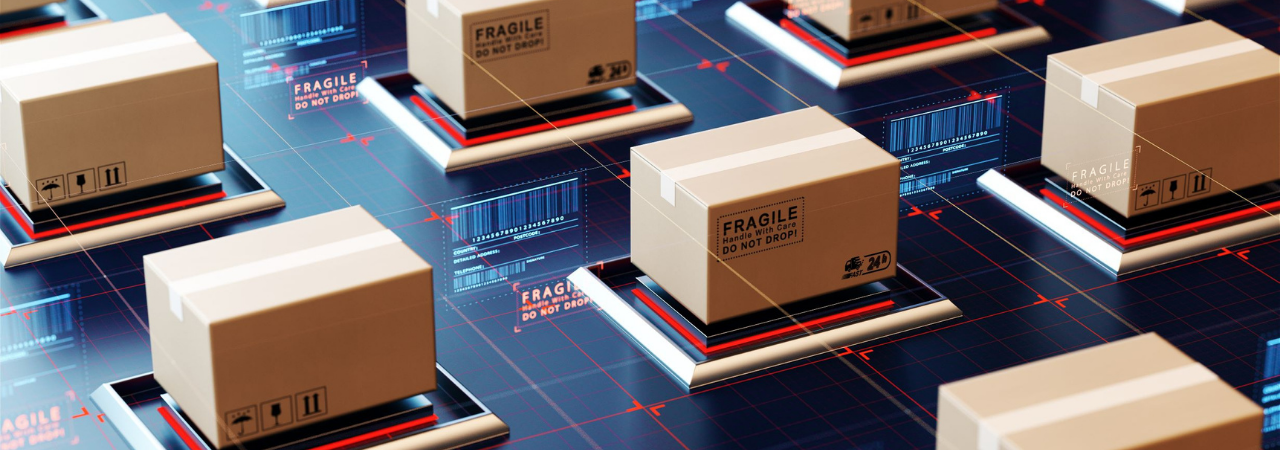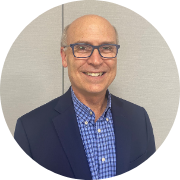

Our Instructor Spotlight is on Enrique Vizoso. Enrique teaches supply chain and manufacturing courses for CPE. When he’s not instructing, he operates his consulting business, Vizoso Business Solutions.
Marah: What professional supply chain and manufacturing experience do you bring to the classroom?
Enrique: I earned a bachelor’s degree from Georgia Tech in chemical engineering, but I ended up taking a job as a process mechanical engineer. After four years in that position, I moved into management at the same company I was working for. I was responsible for one of the plant’s production areas, and I ended up spending about 15 years of my manufacturing career with that company! Afterward, I spent a combined 16 years in distribution and logistics between Cummins Inc. and Kenco Logistic Services here in Chattanooga. My last four years have been spent in the supply chain consulting business where I help manufacturing and supply chain companies improve their top and bottom-line results.
M: What life experiences influenced you to become a teacher?
E: When I became a plant manager in Mexico back in 1997, one of my key responsibilities as a manager and leader was to teach and train others. Through situational leadership, I learned that I enjoy training and developing people. I also had the opportunity to teach in what I would call a “formal” classroom when I worked for various companies, but the love of teaching really stemmed from developing those I was leading through specific activities (for example, discussing books or completing hands-on training projects).
M: What excites you the most about teaching and leading others? Why do you enjoy it?
E: I love the primary cases where people aren’t sure they will be able to accomplish a certain career goal or find success in a job. I firmly believe that most people operate below their capabilities either because they aren’t being challenged, encouraged, motivated, or given opportunities to grow. As a teacher, you’re able to help people make decisions, fulfill responsibilities, and apply knowledge in ways they never thought they would. This, in turn, allows people to fully utilize their potential, which benefits their lives, their families, and their organizations. When I replay the moments where I have seen this scenario unfold in my mind, I am reminded of the responsibility and opportunity I have to help others.
M: Why is supply chain and manufacturing education important?
E: Think about it from the perspective of the virus. The news often talks about what grocery stores have, what they don’t, and why—showing how specialized supply chain has become. It has become a daily household concept as people are realizing how much supply chain touches our lives. When I worked in the early 2000’s, supply chain was simply a cost center. It was only about watching the budget. Now, you still do that in the supply chain realm, but supply chain has grown to the point that it’s a competitive advantage differentiator. You may have a product-centric company, but how you deliver your product greatly impacts the success of the company. Amazon is the perfect example; it has completely changed consumers’ quick delivery expectations.
M: How do you motivate students in your classroom?
E: First, I want the learning environment to be fun and relaxed so students feel comfortable. If they are tense, they won’t be engaged and motivated to learn. Then, I use an application approach that motivates students to learn concepts and see the impact that can be made on their lives beyond the classroom through application. For example, the Manufacturing Excellence Program students have a main objective—find a better job. There is no better motivator than to see that if you learn and apply certain things, you’ll be able to find a better job.
It’s easy to learn a new tool or concept and then revert to your old way of doing things the next week. I encourage people to pick one or two concepts a week and practice them so they can be conscious of how they are applying their knowledge. You can even apply manufacturing concepts at home, like 5s! To me, application is crucial for both motivation and truly learning the course content.
M: In your opinion, what would you say separates UTC’s manufacturing programs from other schools that have similar programs?
E: As an instructor, I have highly appreciated how business-centric CPE is. CPE focuses on what the industry needs and how they can meet those needs so others succeed. I appreciate that because many programs, especially at larger institutions, get so caught up in their own agenda of what they want to teach. CPE truly focuses on how they can help others succeed. Their engagement with those they serve, and their focus on the industry, is CPE’s main differentiator.
M: What are three fun facts about you?
E:
- Two of my favorite movies are The Parent Trap (the ’97 version) and The Rookie. I have to watch them alone because my family is so tired of them! It may surprise people, but I always cry and get emotional watching those movies. My family loves to make fun of me for it.
- I have a big Cuban family and grew up in Puerto Rico. I also have family in South America.
- I’ve been blessed to have traveled for business in Europe and visited several amazing places. However, the one place that had the greatest impact on me was Israel. My daughter had a year-long internship working in Jordan, and since she knew the area, she served as my wife and I’s tour guide. The opportunity to travel to Israel impacted my faith and my historical perspective. I have vivid memories of the trip, and it was especially fun having my daughter as our tour guide.
M: Is there anything else you would like to share about supply chain, manufacturing, or the courses you teach?
E: I would encourage students to keep an open mind. For example, manufacturing involves math, and many students come into courses with the mindset that they are terrible at math. We often are our own worst enemies and disable our ability to learn new things. 90 percent of the math we learn is basic; we just haven’t done it in a while. You’ll get more comfortable with it, especially if you practice it while at the store, pumping gas, etc. Be open-minded about what you are learning!
Lastly, I would encourage people to always be learning. I am going through a course right now where my eyes are being opened to things I haven’t paid attention to before. I have been around the industry for a few decades and have found that I still learn new things frequently—almost every day. Whether it’s classes, webinars, or articles, continuous learning is important.
ABOUT THE AUTHOR:

Marah Whitaker (think Laura with an M) serves as the marketing assistant for the UTC Center for Professional Education. During the workday, she spends time writing blog posts, creating content for social media, developing email campaigns, and building relationships with CPE’s customer base. During her free time, you can find her getting lost in a good book, having spontaneous dance parties, playing piano, and going to Buffalo Wild Wings on Wing Night. Professionally and personally, she aspires to live by Mr. Feeny’s advice, “Dream. Believe. Try. Do Good.” She strives to use her passions to serve others and contribute positively to the world around her.
Connect with Marah on LinkedIn.